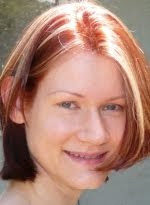Yesterday we looked at how to create a simple bookplate, either for your own library or to use as a promotional keepsake that your readers can download and print from your website. Today we're looking at printing on adhesive labels.
Bookplate Setup
You will need a box of labels of a size that will fit the smallest books for which you intend them.
Check the website of the label manufacturer for pre-made Word templates for the specific labels you’ve purchased. (Avery is a brand available in many countries and their website features a range of templates.) Another option is to check Microsoft’s website by connecting through New Document, Templates, Templates on Office Online. Here is an example of a Microsoft pre-designed bookplate template. (Word 2007 users will probably find templates for most labels already available under the File, New... menu.)
Using Tables to Set Up Your Labels
If you’re unable to find a suitable blank template you can construct your own using tables in Word. Some label boxes contain a diagram with the measurements of the label pages, otherwise measure the margins, label width and height, and bleed spaces between labels and write these measurements in the margins.
Set your document's margins to zero and hit Ignore when Word complains.
As an example, if you have four labels to a page (2X2) and a margin all round, create a table consisting of four rows and four columns. Set the first row's height to your top margin measurement, the second and third rows to the height of your labels, and the final row height to the bottom margin measurement. Do the same for the columns. If the labels have ink bleed margins surrounding them each of these spaces requires an additional column or row with the exact measurements.
Once your table is in place, turn off all borders by selecting the table and choosing the No Border option on the Tables Toolbar. Turn on the Show Gridlines option so that you can see your labels.
Some examples of bookplates and bookplate templates:
Designing Bookplate Templates
Bookplate Junkie
Monet Adhesive Bookplates
Homemade Bookplates
Making a Bookplate
Bookplate Setup
You will need a box of labels of a size that will fit the smallest books for which you intend them.
Check the website of the label manufacturer for pre-made Word templates for the specific labels you’ve purchased. (Avery is a brand available in many countries and their website features a range of templates.) Another option is to check Microsoft’s website by connecting through New Document, Templates, Templates on Office Online. Here is an example of a Microsoft pre-designed bookplate template. (Word 2007 users will probably find templates for most labels already available under the File, New... menu.)
Using Tables to Set Up Your Labels
If you’re unable to find a suitable blank template you can construct your own using tables in Word. Some label boxes contain a diagram with the measurements of the label pages, otherwise measure the margins, label width and height, and bleed spaces between labels and write these measurements in the margins.
Set your document's margins to zero and hit Ignore when Word complains.
As an example, if you have four labels to a page (2X2) and a margin all round, create a table consisting of four rows and four columns. Set the first row's height to your top margin measurement, the second and third rows to the height of your labels, and the final row height to the bottom margin measurement. Do the same for the columns. If the labels have ink bleed margins surrounding them each of these spaces requires an additional column or row with the exact measurements.
Once your table is in place, turn off all borders by selecting the table and choosing the No Border option on the Tables Toolbar. Turn on the Show Gridlines option so that you can see your labels.
Some examples of bookplates and bookplate templates:
Designing Bookplate Templates
Bookplate Junkie
Monet Adhesive Bookplates
Homemade Bookplates
Making a Bookplate
 |
Is Word driving you crazy? Then Word 4 Writers is for you. Learn to tame the monster and save your time in front of the screen for writing not fighting. Elsa Neal has been strong-arming Word for 14 years and teaching others to do the same. She is based in Melbourne, Australia.
|


I can't believe I never thought to design my own bookplates before, especially with all the children's books I've illustrated. This is a fantastic idea and I appreciate all this helpful info. You got the gears in my head turning now!
ReplyDeleteIt is a good idea, isn't it? It has so much potential. Thanks for the visit.
ReplyDeleteWonderful idea. And even better now that I have your advice on doing it.
ReplyDeleteThanks,
Helen
Straight From Hel
Have fun with it Helen.
ReplyDeleteThis was a great couple of posts, Elle. Thanks for putting it together. The litmus test will be whether I can follow the instructions and create one. Will try over the weekend!
ReplyDeleteDani
I should print some up for my current release, Killer Career, and have them handy. I did them for Two Wrongs, but not for my middle book, Girl of My Dreams.
ReplyDeleteMorgan Mandel
http://morganmandel.blogspot.com
Let us know how you go, Dani :-)
ReplyDeleteMorgan, what sort of reaction did you get to your Two Wrongs bookplates?